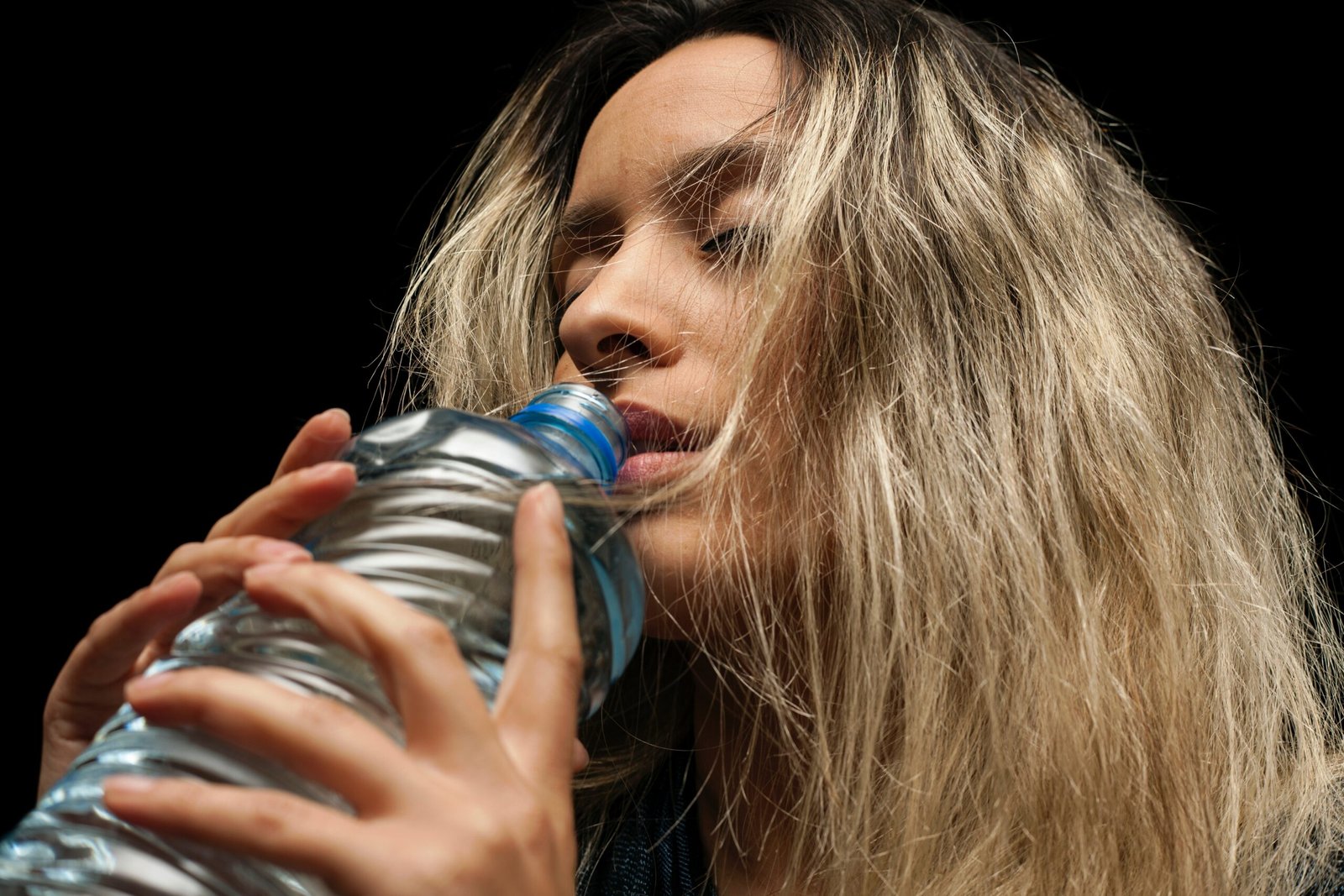
When you use or lose more fluid than you consume, your body doesn’t have enough water and other fluids to carry out its basic activities. You will become dehydrated if you don’t replenish lost liquids.
Your body’s cells and tissues need water to work properly. When you are dehydrated, your heart has to work harder to pump blood throughout your body.
This can lead to a number of health problems, including heatstroke, kidney stones, and even death.
Dehydration is especially dangerous for young children and the elderly. It can cause them to become confused, weak, or even comatose.
Dehydration symptoms
Dehydration symptoms can vary depending on how much water you’ve lost. They can include
- Thirst,
- Dry mouth,
- Swollen tongue,
- Headache,
- Fatigue,
- Dizziness,
- Nausea.
In severe cases, dehydration can also cause seizures or coma.
If you think you or someone you know is dehydrated, it’s important to drink fluids immediately. If the person is severely dehydrated, they may need to be hospitalized.
Symptoms in children
There are several dehydration symptoms in children. It includes:
- Loss of appetite,
- Dry mouth and tongue,
- No tears when crying,
- Irritability, sunken eyes, sleepiness, or confusion.
Causes of dehydration
Dehydration is caused by not drinking enough water, excessive loss of water, or a combination of both. Some common causes of dehydration include:
- Vomiting, diarrhea, or sweating,
- Excessive urination (due to diabetes or drinking too much alcohol),
- Poor fluid intake (due to not liking the taste of water or drinking caffeinated beverages instead), and
- Illness (such as the flu, vomiting, or diarrhea).
Treating dehydration
If you are dehydrated, you will need to drink fluids to replace the water and electrolytes that your body has lost.
Sports drinks, such as Gatorade or Powerade, are a good choice because they contain both water and electrolytes. If you are unable to drink fluids, you may need to receive fluids intravenously.
It’s also important to drink plenty of fluids when you are not dehydrated to prevent it from happening in the first place. Drink water throughout the day, and avoid caffeinated drinks and alcohol. If you are going to be active, drink even more fluids.
Preventing dehydration
To prevent dehydration, it’s important to drink plenty of fluids, especially in hot weather or during physical activity. It’s also a good idea to avoid drinks with lots of sugar or caffeine, which can actually cause you to lose more fluid.
There are several ways to prevent dehydration, including:
- Drinking plenty of fluids,
- Wearing light and loose-fitting clothing,
- Staying in the shade when possible,
- Drinking sports drinks or electrolyte solutions if you are active or it’s hot outside
- Avoid alcohol and sugary drinks.
Risk factors for dehydration
There are a few risk factors for dehydration, including:
- Age (young children and the elderly are at higher risk),
- Location (those living in warm, dry climates are at higher risk),
- Activity level (athletes are at high risk for dehydration), and
- Illness (such as vomiting or diarrhea).
Now that we know all about dehydration, it’s important to be able to identify the symptoms and know what to do if someone is dehydrated.
If you are experiencing any of the symptoms of dehydration, drink fluids immediately and seek medical help if the symptoms are severe.
What happens to your body when you are dehydrated?

Your cells and tissues need water to work properly.
When you are dehydrated, your heart has to work harder to pump blood throughout your body. This can lead to a number of health problems, including heatstroke, kidney stones, and even death.
Dehydration is especially dangerous for young children and the elderly. It can cause them to become confused, weak, or even comatose.
It’s important to drink fluids and stay hydrated to prevent dehydration. Drink water throughout the day, avoid caffeinated drinks and alcohol and drink even more fluids when you are active.
If you are experiencing any of the symptoms of dehydration, seek medical help right away.
What happens when you are dehydrated during pregnancy?
Dehydration can be dangerous during pregnancy.
It can cause you to become weak and dizzy, and can also lead to premature labor. It’s important to drink fluids regularly when you are pregnant, especially if you are active or living in a warm climate.
If you experience any symptoms of dehydration, drink fluids immediately and seek medical help.
What happens when you are severely dehydrated?
If you are severely dehydrated, you will need to receive fluids intravenously. This can cause serious health problems, including seizures, coma, and even death.
It’s important to seek medical help if you are experiencing any of the symptoms of dehydration.
Dehydration is a serious condition that can cause a variety of health problems. If you are experiencing any of the symptoms of dehydration, drink fluids immediately and seek medical help.
Prevention is key, so drink plenty of fluids throughout the day and avoid drinks with lots of sugar or caffeine.
What are the dangers of dehydration?
Dehydration can cause a variety of health problems, including:
- Heatstroke,
- Kidney stones,
- Premature labor,
- Seizures,
- Coma,
- Death.
It’s important to drink fluids and stay hydrated to prevent dehydration. Drink water throughout the day, avoid caffeinated drinks and alcohol and drink even more fluids when you are active.
If you are experiencing any of the symptoms of dehydration, seek medical help right away. Prevention is key!
Summary
Dehydration is a serious condition that can cause a variety of health problems. If you are experiencing any of the symptoms of dehydration, drink fluids immediately and seek medical help.
Prevention is key, so drink plenty of fluids throughout the day and avoid drinks with lots of sugar or caffeine.



